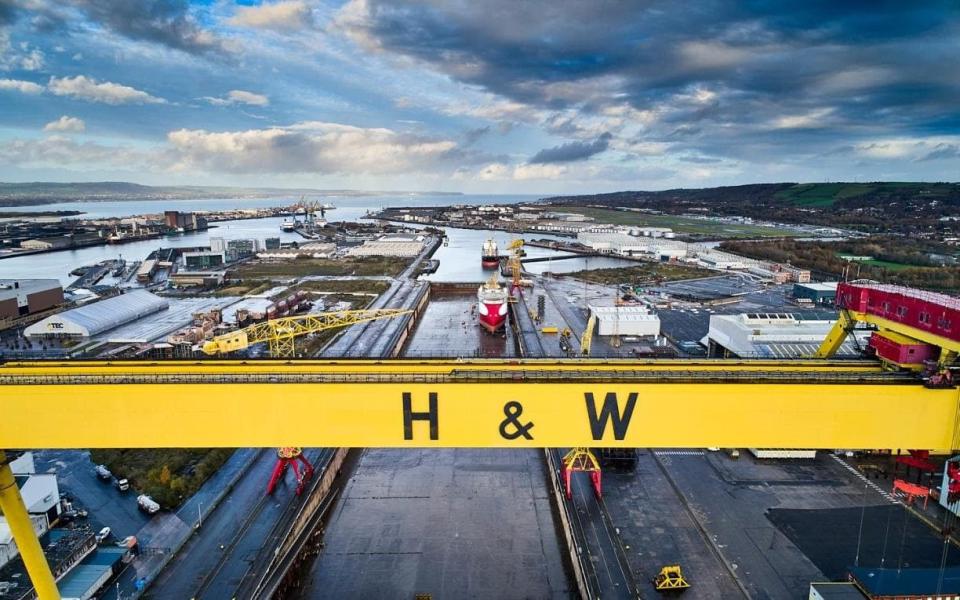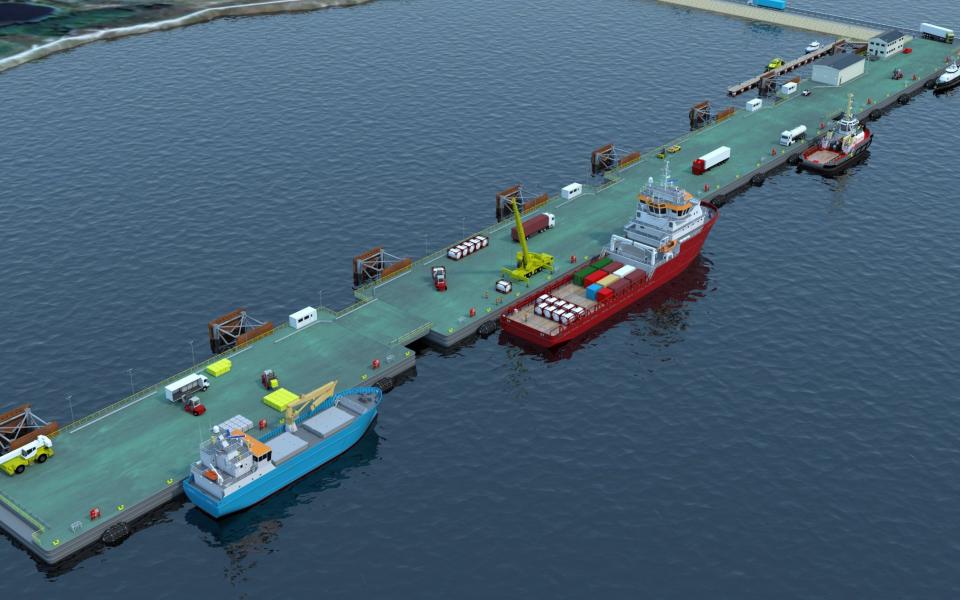Titanic shipyard set to win £120m contract to build new Falklands port

The historic shipyard that built the Titanic is on course to win a contract worth up to £120m to build a new port for the Falkland Islands.
Harland & Wolff has been chosen as the “preferred bidder” by the Falkland government following a tender process, the Belfast-based company announced on Tuesday.
The project will involve building a floating dock, which will be connected to the island by a separately-constructed access road and causeway.
On Tuesday, Harland said the contract was subject to final negotiations on pricing and commercial arrangements but could potentially be worth £100-120 million over two years.
Finalising the deal would be a boost to Harland & Wolff, which has gone from receiving petitions from HMRC over unpaid tax bills to landing major defence contracts.
The tax office petitioned to have a subsidiary of the company wound up in June 2022 over an alleged unpaid bill of £92,275. The company blamed an “administrative error” at the time.
Harland & Wolff subsequently won a £55m contract to overhaul minesweeper vessels for the Lithuanian navy and has since gone on to win part of a contract to build supply ships for the Royal Navy.
Once one of the UK’s best-known companies, Harland & Wolff is most famous for having built the Titanic. It also played a crucial role in the Second World War, building 140 warships and 123 merchant vessels as well as more than 500 tanks.
The company’s two giant yellow-painted gantry cranes, Samson and Goliath, have become famous features of the Belfast skyline.
Work on the Falkland project is expected to start later this year and will involve the construction, transportation and installation of four floating pontoons, each about 90 metres long.

The building work will be “spread across multiple facilities”, Harland said. All four of its sites in Belfast, Devon, the Isle of Lewis and Scotland are capable of constructing pontoons.
The project will replace the existing port facilities in Stanley, the capital of the Falkland Islands, which comprises six linked barges. Those facilities, which were also built by Harland & Wolff, have been in place since 1984 and have now become obsolete.
John Wood, chief executive of Harland & Wolff, said: “Following a competitive bid process, I am delighted that the Falkland Islands government has selected Harland & Wolff as preferred bidder for this project.
“The company enjoys an excellent relationship and a rich heritage with the Falkland Islands, given that Harland & Wolff built the existing port facility 45 years ago.
“I look forward to working closely with the Falkland Islands government and bringing this contract to fruition.”
Harland & Wolff was founded in 1861 by Edward Harland and his German business partner, Gustav Wolff, and employed 35,000 people at its peak.
The company was hit hard by Britain’s industrial decline from the 1970s onwards. It was saved from closure in 2019 by London-based energy firm InfraStrata, which paid £6m for the company.
Since then, the Government has made moves to boost Britain’s shipbuilding industry, unveiling a national shipbuilding strategy that vowed to invest £4bn in domestic yards and suppliers.

 Yahoo Finance
Yahoo Finance 